Student Blog
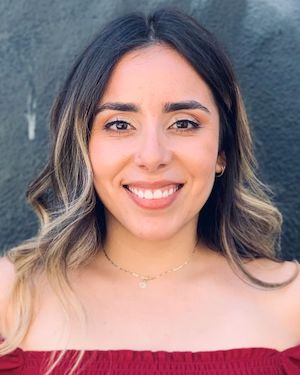
The USC U don’t C ⟩
April 21, 2022, by Silvia
Admissions Community Diversity First-Gen Getting Involved
No todo es color de rosa. Like my friend Rolly says, “There is a USC that you don’t see.”
Holistic admissions? I love it. I am all in for decreasing barriers and increasing access for students to enter spaces of higher education. Do you know the percentage of Latinx individuals in higher education? There is not many of us, but that is changing. We are changing it.
As the new director of admissions, Dr. Anvarizadeh and her team pushed for a holistic process that would view applicants as whole individuals—considering their core values, thoughts about equity, diversity, and inclusion, etc. — and not just as a set of test scores or GPAs. Let me tell you why this has been a game changer, but more importantly, why the work can not stop only with holistic admissions.
⋯
In 2018, I graduated from Cal Poly SLO with my first collegiate degree. The time that I had to rejoice in that feeling of being the first in my family to graduate college was short lived as my dad would be losing his job shortly after. I was quickly reminded of my role and my identity as a Mexican daughter, the eldest child in a family of eight. My educational and career goals were put on pause because as I was raised, in my Mexican culture, family comes before and is above everything. Naturally embracing that role, I texted my brothers to figure out how we were going to pull through, like we always do.
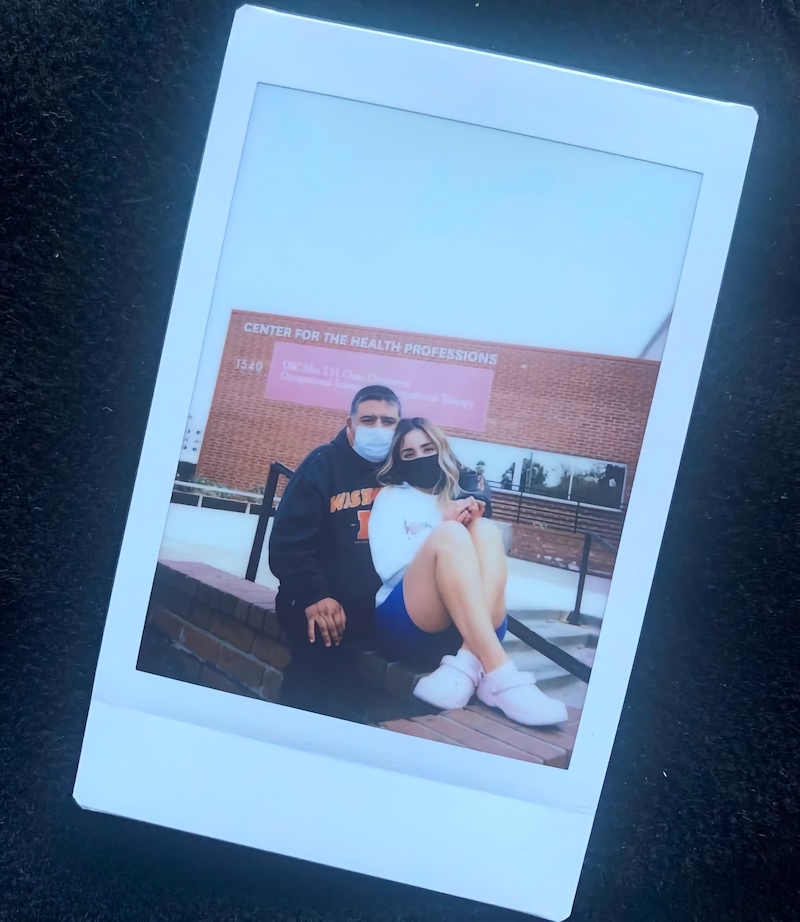
Mi papá y yo at CHP
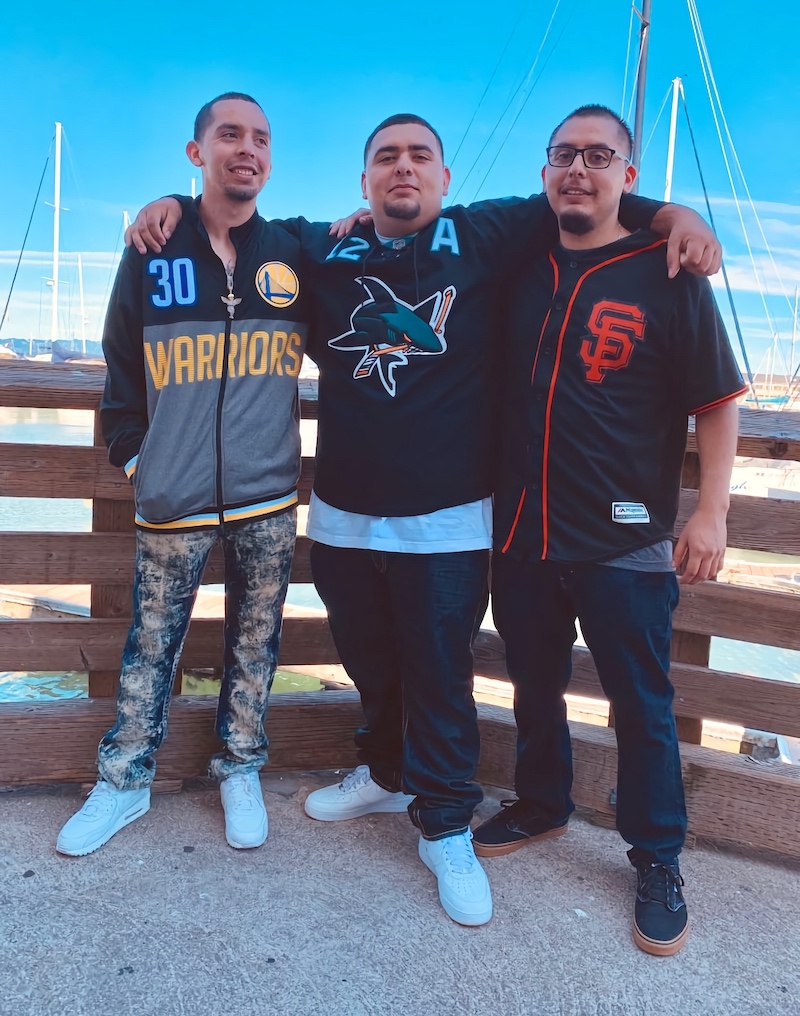
My 4Lifers, mis hermanos
For the next year or so, I worked Monday-Sunday and gave my dad more than half of my paycheck. When I began considering the possibility of furthering my education and applying to graduate school, I felt guilty. I felt selfish. How could I be thinking about myself and what I wanted when my dad was still not 100% back on his feet? It is ironic because even the decision of going back to school was based on helping my parents. I needed this degree to be able to get a job in my field of interest and so that I could earn more money to give back to my family. That is how collectivist cultures like mine work.
The thought of resuming my role and identity as a student was great, but with what money and what time? What money was I able to save for grad school? What money did I have to spare to take the GRE more than once or to spend on study materials, for that matter? What time did I have to sit for a 4-hour exam more than once? I didn’t. Talk about the barriers that USC Chan’s holistic admissions addressed for me. In my application video I stated the occupations that got me through the difficult time my family faced: work and prayer.
That is my story, but I write this blog to highlight the fact that there are stories behind the BIPOC students being admitted into the program that you do not see. Holistic admissions have opened the door for us to be able to step into higher spaces, but to quote my friend Miriam De La Torre, “don’t invite us into the room if there is not a seat at the table open for us.” You see the faces and numbers that represent diversity but are ignorant to the adversity attached to them. If the work is not to be performative, we cannot continue to casually disregard that the “E” in the new JEDI curriculum stands for equity vs. equality. You can’t allow us into the room to watch us stand. Students need to be supported beyond admission.
Se tenía que decir y se dijo.
All this to say that many of us BIPOC student and allies are here to keep the momentum going to make sure we continue to do the work past holistic admissions. Like Dr. Anvarizadeh said at COTAD’s “Springing into Action” virtual event, we cannot do this in silo — we have to lock arms to see it through. I hope y’all are ready for what is to come as we continue to collaborate, work together, and build community.
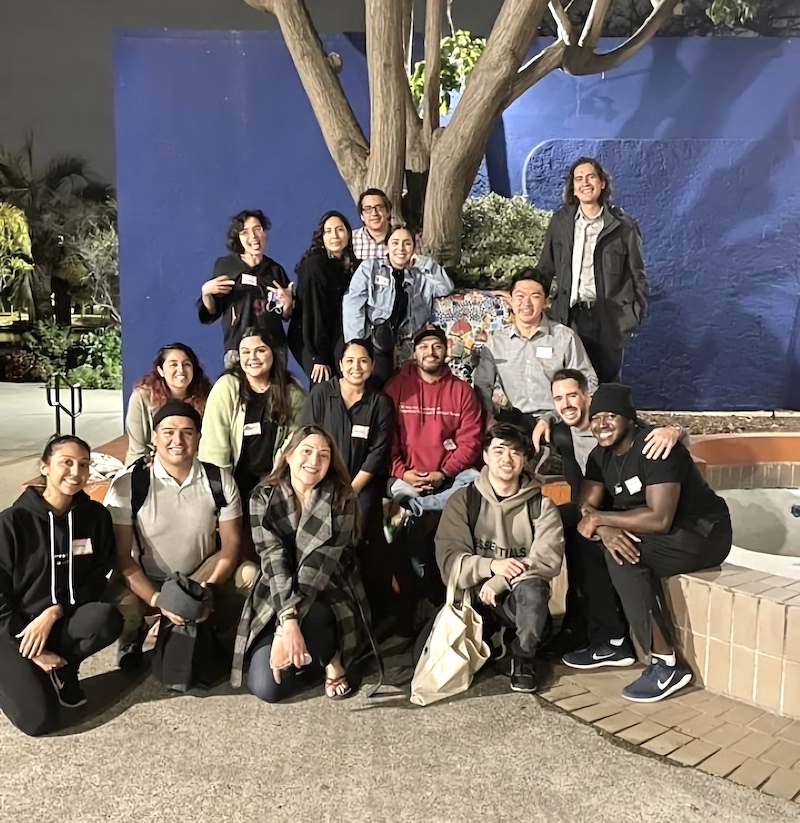
Showing up for each other: Students attend an event at Plaza de La Raza for which Dr. Diaz was a panelist
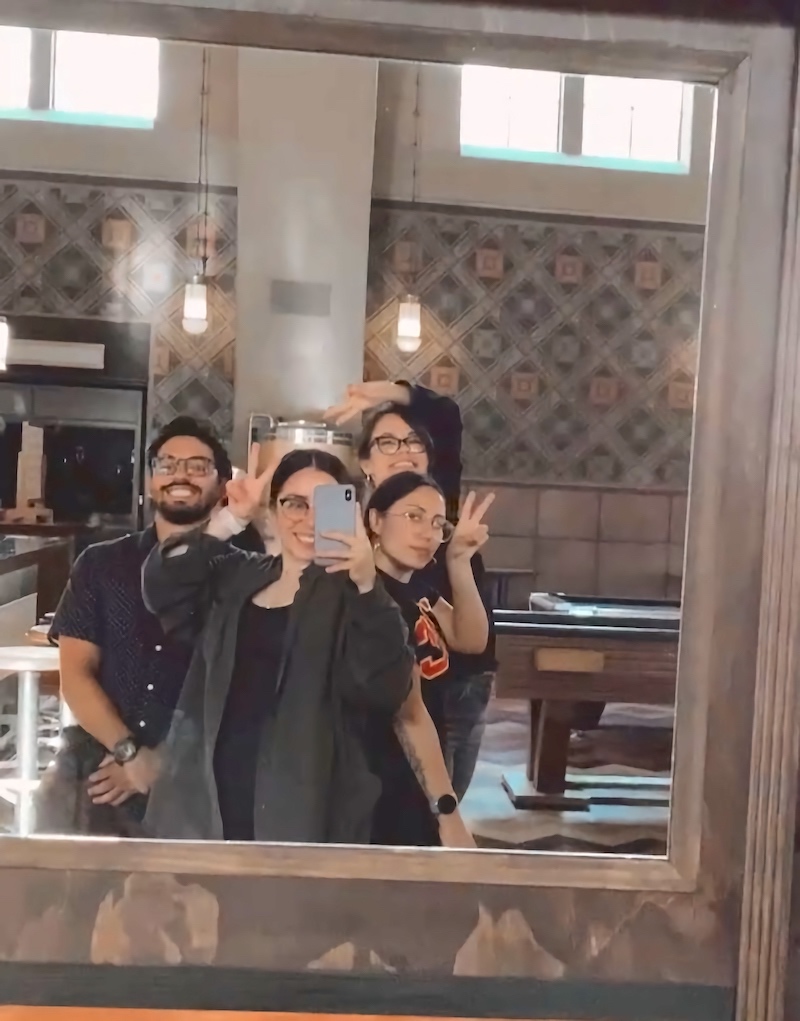
Mis amig@s y yo at one of our AHTO social events: Abraham Ramirez, Daniela Flores-Madriaga, Denisse Mendoza
⋯
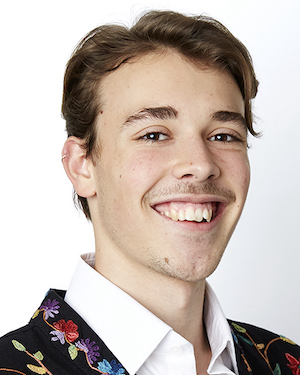
Humans of USC Chan Volume 3 ⟩
April 20, 2022, by Seth
Community Diversity What are OS/OT?
Committing to graduate school is a big decision and exploring which ones may be the best fit for you can be an equally arduous experience. I remember when I was looking into occupational therapy programs, I looked at the standard quality and cost components, but as a queer person, I was also looking for a place and a profession that I felt could let me blossom as I transitioned into a new life stage (i.e., adulthood, a professional, and, let’s be honest, a world outside of the closet). I wanted to know if I could drop my hairpins or if I had to censor myself. I wanted to know if I could bring LGBTQIA+ topics into the classroom without being anxious about how they would be received. Would I feel isolated or could I find a community? My community? What are my classmates’ experiences, and what can I learn from them? These questions can be hard to find and directly seeking them out can be intimidating or a moment of self-disclosure that may not feel right yet. After all, it’s not often you see these experiences plastered on a program’s website. So, I took it upon myself to do just that.
I hosted a forum with some LGBTQIA+ students within the Chan Division to talk about how they discovered occupational therapy, their relationship with the profession, and their experiences navigating an occupational therapy program. This is a video curated by a queer person in partnership with queer people. And this one is for the family! We even share some advice for those thinking of applying to a program. If you choose to watch it through YouTube, the video is time-stamped with each topic if you ever want to go back to a specific conversation.
I hope you find this video helpful and that these diverse perspectives give you more insight into what LGBTQIA+ student life is like in the Chan Division! Welcome back to the Humans of USC Chan!
⋯
Everything I know about life, I learned from OT ⟩
April 20, 2022, by Global Initiatives Team
Getting Involved International What are OS/OT?
By Josh Digao, Post-Professional Master’s Student
Editor Alison Chang and Vanessa ElShamy
Entry-Level Professional Master’s students
I am from a country that still has, at its very core, patriarchal values. Not to say that the Philippines is a backwards country, but I and a lot of the pre-social media generation Filipinos were raised to believe that men were supposed to act a certain way. When you are raised in such an environment, it becomes what you believe to be right and wrong. Growing up, I felt trapped in a box that dictated how I should think, act, and speak in order to be accepted as a tunay na lalaki (real man). “Don’t care too much”, “Don’t show your emotions”, “Never let others tell you you’re wrong.” In my mind, being this arrogant, unfeeling, uncaring person was what being a man meant. But I struggled with that belief; I did not want to align myself with that archaic idea of a “real man.” It was not until I took up OT that I learned I did not have to.
It was in OT school, the pontifical and royal University of Santo Tomas, that I met some of the strongest and most wonderful people who helped me unlearn my ideas of toxic masculinity and made me the person I am today. The first of which was a professor that tried her best to instill in her students the value of being kind. A Mabuting OT (kind OT) - that is what she wanted us to be. For her, it did not matter as much that you knew all the therapeutic techniques in the book, or that you could name every muscle, bone, or nerve in the human body. What mattered was that when faced with a client, you would treat them with the utmost respect and compassion, regardless of status, age, or ability. “It’s better to be the kindest therapist than the smartest therapist” is what she would always tell us. It was not until I encountered my first few clients that I realized just how right she was. Clients, and even their family members, responded best to therapy when they felt that their autonomy and personhood was respected and cared for.
The second lesson was that of empathy. This one I attribute to the remarkable group of humans I call my friends. I have been lucky enough to be around people who are deeply loving, sensitive, and emotionally mature. Through them, I learned that in order to truly understand the emotions of others, we need to be attuned to our own. However, before I could learn to comprehend my emotions, I had to allow myself to first feel them. This realization would come to not only help me in my personal growth, but in my professional growth as well. In clinics and hospitals, I would often encounter people at their lowest points. During those moments, I realized more than ever the importance of being empathetic to other people’s struggles.
The last lesson came from my clinical instructors during my internship. Being new to the field, I was largely unconfident in my skills and abilities. I had no experience, and on top of that, the knowledge I was heavily relying on was purely theoretical. But when my clinical instructors (all of whom were amazing OTs) gave me feedback, they would focus on what it was that I did well. They recognized my strengths first, and that gave me the foundation that I needed to develop my own professional identity. I learned not only to accept the person I was, flaws and all, but to also be confident in what I bring to the table.
I believe that OTs are some of the most incredible people out there. The kindness and wisdom that I have seen from every single OT I have met continues to amaze me. Though I consider myself to be a deeply flawed person, they have taught me that the person I am is enough. I have learned that the only way to be a “real man” is to be true to yourself. As I am currently in the process of unlearning outdated values from my childhood, I know that perfection is not my goal; kindness, understanding, and acceptance are. If we extend these values toward ourselves, we will realize that at the end of the day what really matters is we are all trying our best - and we can already be proud of that.
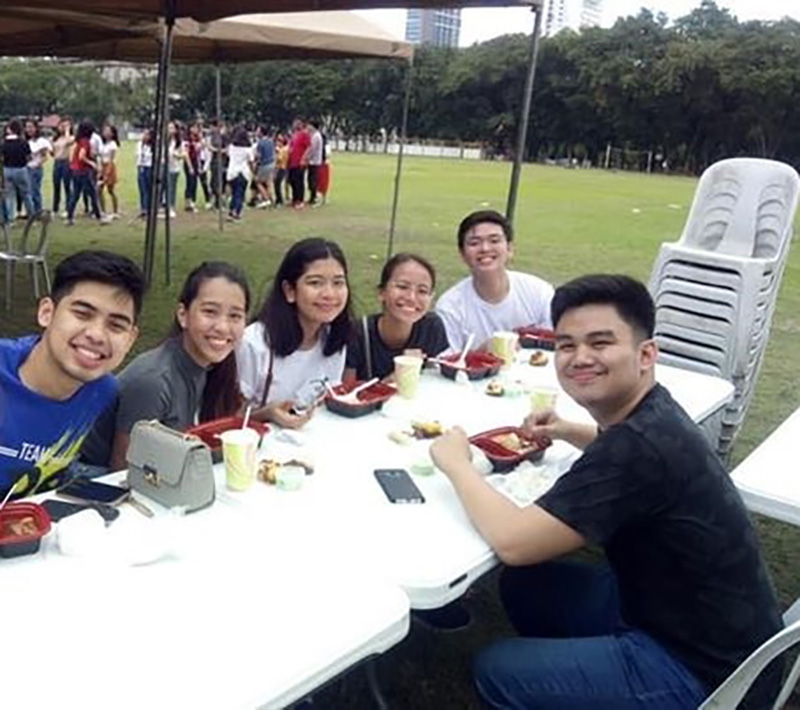
Josh and his friends back at UST
⋯
Ramadan Mubarak ⟩
April 13, 2022, by Global Initiatives Team
By Vanessa ElShamy, Entry-Level Professional Master’s student
Editors Michelle Plevack and Abraham Ramirez
Entry-Level Professional Master’s students
Ramadan — the ninth month of the Islamic calendar. In short, this is the month where Muslims believe that the Qur’an (our holy book) was revealed to the Prophet Muhammad. Most people know that Muslims fast during this month (no food or drink from sunrise to sunset, and yes, not even water), however, it goes much deeper than that. Muslims do not just fast from food and drink, we also fast from poor habits such as bad mouthing others and seek stronger spirituality and connection to God (Allah), pray heavily, read the Qur’an more often, and participate in profound self-reflection. Additionally, we are obligated to give to charity (zakat) and perform good deeds as often as possible — selfishness has no place in Ramadan. While individuals may approach Ramadan slightly differently around the world, it is understood that the main objective is not to make ourselves suffer, but to become more conscious of our beliefs and look inward to pursue true self-improvement. When you strip your life of worldly pleasures, you are only left with yourself. It may seem intense to some, but I truly feel that it cleanses my heart.
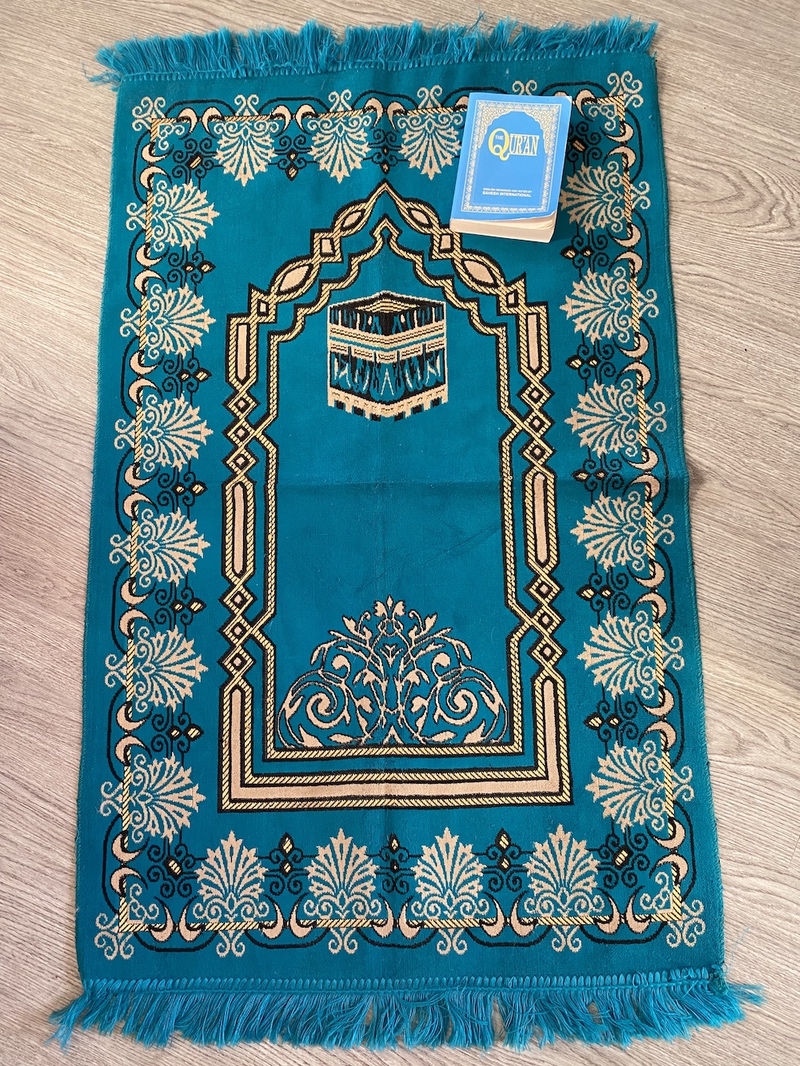
My prayer mat and Qur’an. We always face our mats and bodies toward the Kaaba, the sacred center of the holy city of Mecca.
Ramadan is based on the lunar calendar, so it starts on a different date every year. This year it began on April 2nd and will continue until May 2nd. This is the first year that I am observing Ramadan on my own, out of my parents’ house. It is also the first year in a long time that I am fasting during classes and exams, which I will admit, I am not exactly looking forward to. As beautiful and transformative as Ramadan is, it is not easy, and it is not supposed to be. We are 3 days into this year’s fast and so far I am surprised by how capable I have been without my morning coffee. I have not had any headaches from lack of caffeine thus far, and for this I say “Alhamdulillah” (“thank God” or “praise be to God”). While I have been a bit sad because I miss my family and our Ramadan traditions — feeding each other dates before Iftar (the meal that ends the day’s fast), drinking decaf coffee and eating baklava together after dinner, and more — I feel optimistic about what the month will bring me. As humans, we will make mistakes — they are a part of life. I know this to be true but I usually do not give myself the same grace I give others when I make mistakes. Ramadan reminds me time and time again that we are worth forgiving when we make mistakes, as long as we take responsibility for them and commit to doing better. Shame and guilt are powerful forces, but forgiveness is always stronger. Due to this, I have left Ramadan every year with a heightened sense of self-worth and a clearer picture of life’s purpose.
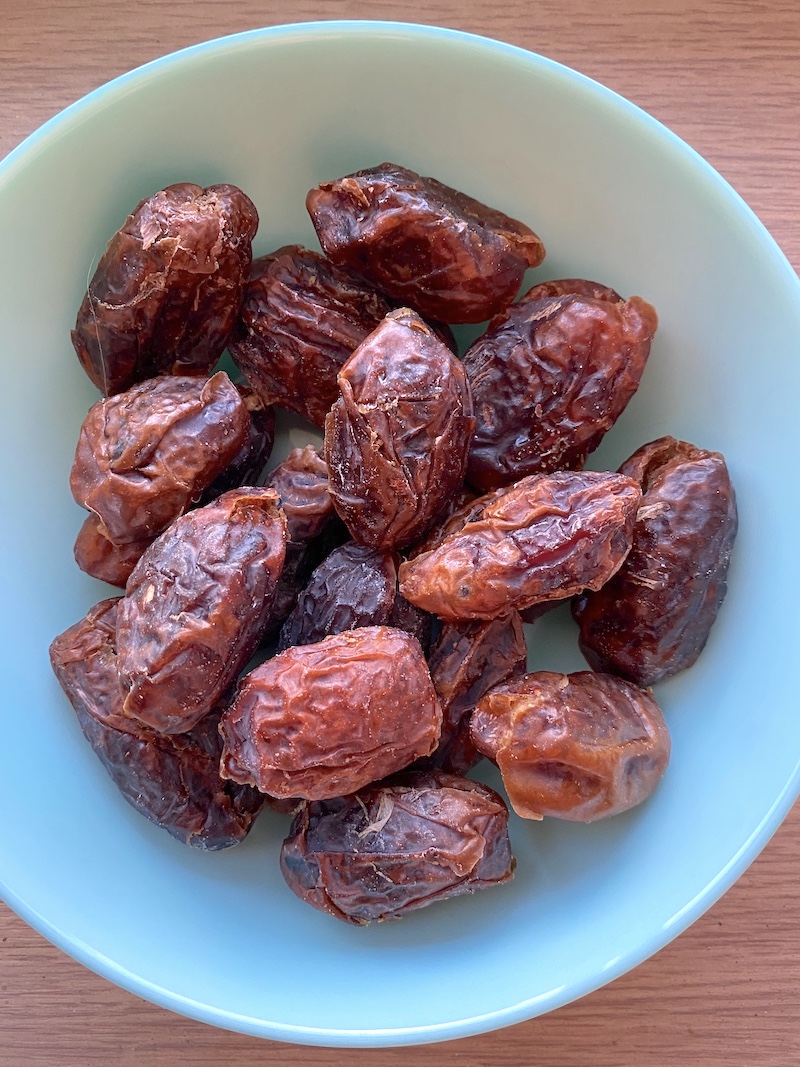
The Mejdool dates that I have been breaking my fasts with this year. Dates are high in sugar and vitamins, which makes them good to eat after a long day of fasting.
Participating in Ramadan is a meaningful occupation to me. During the month, fasting becomes an activity of daily living. When looking at the Occupational Therapy Practice Framework (OTPF), Ramadan encompasses client factors such as personal values, beliefs, and spirituality. While these factors may not be important to all, they are vital to people like me who shape their everyday lives off of certain spiritual sentiments. As the OTPF states, spirituality is “the aspect of humanity that refers to the way individuals seek and express meaning and purpose and the way they experience their connectedness to the moment, to self, to others, to nature, and to the significant or sacred” (AOTA, 2020). I honestly cannot imagine my life without Islam or Ramadan. Every time I waver from the spiritual path, I find myself being pulled back in. Every time I get annoyed that I “have” to fast and pray, I remind myself how beneficial it is for my spirit and mind. I think it is beautiful that so many people feel similarly about different religions and other forms of worship — this was a little glimpse into mine.
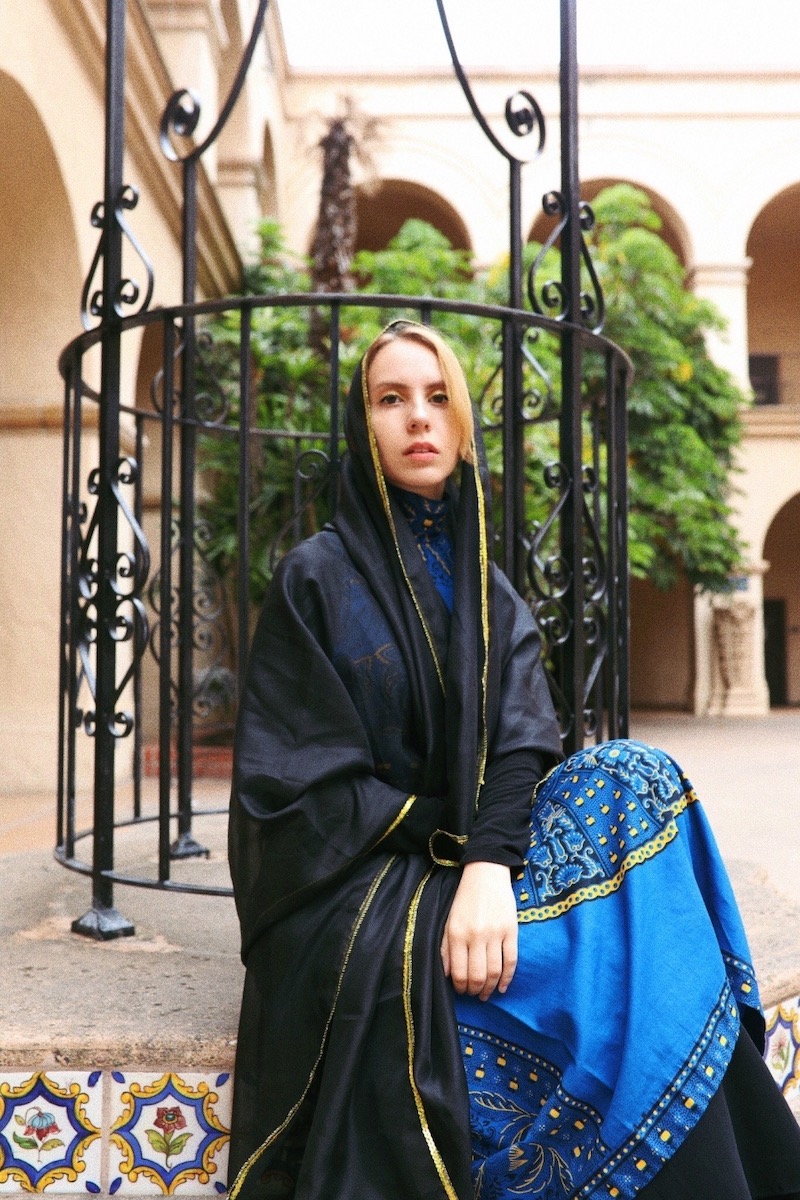
Me, a few years ago on Eid (the celebratory day after Ramadan ends).
⋯
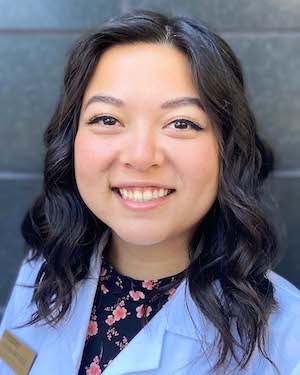
Going Back in Time to High School: My Externship Experience ⟩
April 12, 2022, by Alyssa
As part of OT 540: Leadership Capstone, all students are tasked to design a leadership experience for themselves across two weeks following spring break. The flexibility of this assignment was intimidating - so many things to choose from. You can do online certifications, shadow healthcare administrators, get involved in policy advocacy, or really . . . anything else you could think of, as long as it relates to leadership development.
I knew that after attending a large part of OT school online I wanted to take advantage of having another in-person learning opportunity. Thus far, I’ve learned that I love the hospital setting, but what if another setting was out there that I just hadn’t gotten the chance to see? So given that I took the pediatrics immersion online, I decided to aim for a leadership experience within a school.
The externship project is specifically NOT fieldwork. You’re not supposed to observe or provide clinical services, so shadowing a traditional school-based OT was off the table. However, it still posed a unique opportunity to explore the role of OT with a population I’m interested in – high schoolers. I attended a high-pressure vocational high school, and I desperately wish I could go back in time and tell myself everything I’ve learned since about taking care of myself. So that was the general theme I was going for.
My goals included:
- Promote the value of occupational therapy in the high school setting through education on the benefits of OT for academic success and student wellness
- Better understand the collaboration between teachers/administrators and OTs in school settings
- Prepare for leadership roles by practicing and developing my professional communication skills.
There are 10 full days to fill with externship activities, and they can be at different sites as long as they’re all related. They could also be completed outside the two dedicated weeks in the semester. I did half of my activities during the externship weeks, and spread out the other half beforehand.
The primary experience of my externship was a collaboration with my high school health teacher back at home in NJ. I worked with her to identify wellness-related needs of her current students and put together general wellness presentations to give to her classes.
The week was wonderfully chaotic. Getting to interact with students and learn more about the behind-the-scenes work of teachers was awesome. Having to evacuate the building mid-presentation because of a gas leak was . . . a lesson in flexibility. Overall, it was incredibly meaningful for me to go home and be back in a familiar setting sharing the benefit of the OT wellness lens with students and teachers.
In preparation for this experience, I connected with Dr. Rashelle Nagata at the USC Kortschak Center for Learning and Creativity for guidance. From Dr. Nagata, I learned more about the role of OT for academic success/wellness promotion for older students, and she was an essential mentor for developing engaging evidence-based presentations. An additional opportunity presented itself to volunteer with an OTD resident at a charter school in LA, so I also spent some externship hours working with her to plan and implement social-emotional learning activities for students there. So in total, that’s 3 sites, 3000 miles apart, mostly in person and partially via Zoom meetings. What an experience!
To any future students, I highly recommend using the externship as an opportunity to try something new and hone your leadership skills along the way.
⋯





